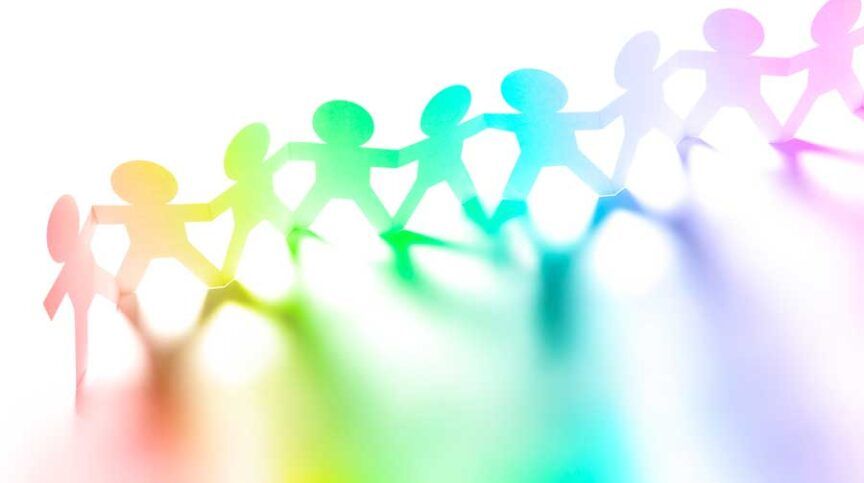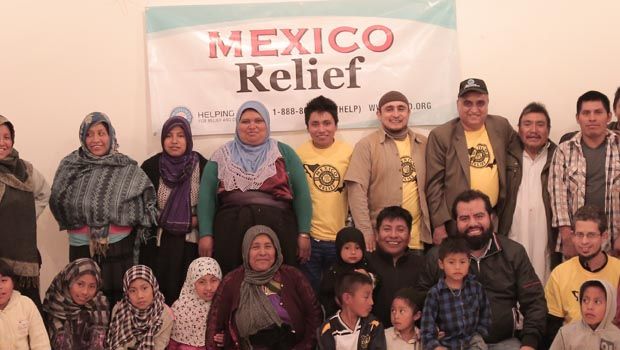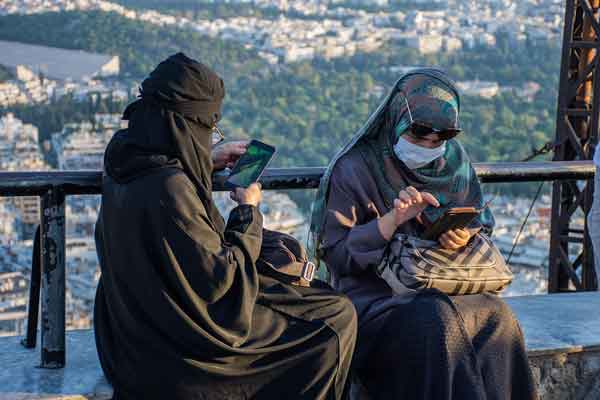Human trafficking is an international crime that spans 182 countries, victimizes millions of individuals, mostly women and children, rakes in billions annually for the traffickers, and has stymied the efforts of governments and law enforcement to curtail it.
Human trafficking can take on many forms, but at a minimum, it is “the use of force, fraud, or coercion to obtain some type of labor or commercial sex act,” according to the Department of Homeland Security. It is, in fact, slavery, and it is at an all-time high in our contemporary times. Depending on the country, traffickers might trick, kidnap, or manipulate victims who are then exploited in-country or abroad. “Language barriers, fear of their traffickers, and/or fear of law enforcement frequently keep victims from seeking help, making human trafficking a hidden crime” (dhs.gov).According to a Department of State fact sheet, almost 25 million individuals worldwide are being exploited by human traffickers. That is roughly the entire population of Australia.A UNICEF estimate puts the number of exploited children at 5.5 million. Another organization estimates that “about 40 million people in 182 countries throughout the world [are] reduced to slavery…”
Human trafficking, or modern-day slavery, is well entrenched in the West and almost impossible to stop, manage, or control. With its fluid borders, “…this is one of the most lucrative illicit businesses in Europe, where criminals are making around 2.5 billion per year through sexual exploitation and forced labour,” according to the UN Office of Drugs and Crime. UNODC also notes, “In Europe over half of the victims come from the Balkans (32 percent) and the former Soviet Union (19 percent), with 13 percent originating in South America, seven percent in Central Europe, five percent in Africa and three percent in East Asia.” As for the United States, it is estimated by the State Department that between 14,000 to almost 18,000 are brought in as trafficked individuals. That does not include those who are Americans trafficked within the U.S. According to the ACLU, there is a high occurrence of trafficked persons wherever a large number of immigrants reside, like California, New York, and Florida. They are often forced to work in “domestic service, agriculture, sweatshop and factory work, restaurant and hotel work and in the sex industry.”
What makes human trafficking particularly heinous is that already vulnerable populations, those affected by poverty, war, or natural disasters are exploited the most. While Muslims should be concerned about any evil perpetuated in the world and do their utmost to combat it, we often only react when it is Muslims in peril, believing that others will care for the broader society. It should not surprise readers that impoverished or war-ravaged Muslim majority-countries are a major source of trafficked victims. Many Muslim-majority countries are experiencing political, social, and/or economic upheavals and this environment is conducive to all sorts of exploitation. Yet, it is all the more appalling that people in rich Muslim-majority countries receive and abuse trafficked individuals, treating them as less than human. The governments in these countries turn a blind eye, are ill-equipped to stop it, or simply do not care.
The U.S. State Department’s Office to Monitor and Combat Trafficking in Persons has created a tier rating based on a country’s compliance with standards outlined in the Trafficking Victims Protection Act. The Muslim-majority countries of Iran, Eritrea, Syria, and Algeria “have appeared on the annual Trafficking in Persons report as Tier 3 countries consistently,” between 2011 to 2018, according to World Atlas.com. Tier 3 countries are those that don’t meet the minimum standards of the Trafficking Victims Protection Act.The tier rating system can be circumvented through waivers, which Saudi Arabia has received multiple years to avoid being graded a tier 3.
Eritrean victims include those fleeing the country for better opportunities who are caught or lured by traffickers. Iranian women and children are being trafficked, some sent to the UAE and forced into sex work or sex trafficked across the Turkish border.The Iranian government often arrests the so-called sex workers, without verifying if they are victims of trafficking and then going after the traffickers and/or their clients instead.In Mauritania, a racial component is added where those of African or Moorish descent are trafficked for either sexual or domestic exploitation in Saudi Arabia and the Gulf countries. There are also cases of forced marriage of young girls who are sold by a network of agencies. Some countries, like Algeria, are used as points of transit for traffickers into Europe, while Kuwait and Libya are notorious destinations for forced labor and nonconsensual sex.
Supporting the Fight Against Human Trafficking
Many nonprofit organizations are dedicated to fighting human trafficking including the National Center on Sexual Exploitation (NCOSE), Shared Hope International, Exodus Cry, Rights4Girls, Demand Abolition, ECPAT International (Thailand), World Without Exploitation, Coalition Against Trafficking In Women, Polaris, Unseen, UNICEF, Liberty Asia, Hagar (Cambodia), Destiny Rescue, and The Code of Conduct for the Protection of Children from Sexual Exploitation in Travel and Tourism. There are countless others, but what is common in most of them is that they focus mainly on victim rehabilitation and/or advocacy. A few try to disrupt trafficking networks. Government and international entities that work to bring trafficking criminals to justice, as well as promote international laws to address trafficking, include the U.S. State Department’s Office to Monitor and Combat Trafficking in Persons, the UN Protocol to Prevent, Suppress, and Punish Trafficking in Persons, Especially Women and Children, the UN Global Programme Against Trafficking in Human Beings, Interpol, the International Labour Organization, and the International Organization for Migration, among others.
Unfortunately, the Muslim response to human trafficking, in any organized way, is limited. There are dozens of Muslim nonprofits dedicated to relief and development operating in the U.S. and abroad. A few attempting to address human trafficking include Muslims Against Human Trafficking, Oasis House, and My Project USA. According to the founder of My Project USA, Muslim response to her nonprofit is that“Some donate, and others stay as far away as possible.” She believes that this is because in Muslim communities there is a stigma attached to making private or controversial matters public. However, as Allah SWT states in the Qur’an, “Stand firm for justice as witnesses for Allah even if it is against yourselves, your parents, or close relatives, be they rich or poor.ForAllah is nearer to both of them. So, do not follow desire lest you deviate. If you distort or refrain, then indeed Allah is All-Aware of what you do” (4:135).
If Muslim nonprofits begin to take on human trafficking as another component of their advocacy or relief programs, that may go a long way towards normalizing the discussion in Muslim communities of this heinous crime. Muslim children can be targeted by traffickers so ignoring trafficking as “Western concerns” or “not our problem” is very short-sighted and leaves our children vulnerable like all others.But, beyond that, finding an organization that works to end trafficking or helps to rehabilitate victims and then supporting that organization is the least that we can do. Muslim organizations should take a position and develop a plan to help fight trafficking, promote victim support, or prioritize community education about the existence of these types of exploitation in Muslim countries and around the world. This could be a start towards justice. As Allah’s Messenger (s) said, “There is a sadaqa to be given for every joint of the human body; and for every day on which the sun rises there is a reward [for giving] of a sadaqa for the one who establishes justice among people” (Sahih Bukhari).





